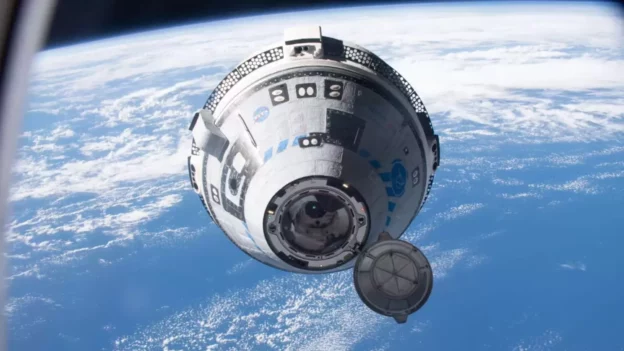The takeoff of Boeing’s Starliner capsule is delayed due to a technical problem in a valve on the Atlas V rocket, responsible for propelling the capsule into space. The launch was scheduled for Monday night, destined for the International Space Station. It is now postponed, with no new date defined for the event.
Boeing’s Starliner delayed due to unforeseen failure
The Atlas V rocket, produced by United Launch Alliance, is the product of a collaboration between Boeing and Lockheed Martin. However, this incident adds to a series of delays that Boeing’s Starliner project has suffered , planned with two astronauts on board and to safeguard their safety.
NASA has reported that an oxygen relief valve , on the second stage of the Centaur rocket, demonstrated unusual behavior, “creating an unusual humming noise or continually opening and closing .” This translates into a thorough inspection to decide if it needs to be replaced because it has been used excessively.
Now, the rescheduling of the launch of the cst 100 Starliner capsule is contemplated to take place at the end of the day, or to be postponed until Friday or Saturday . From NASA, they assure that the integrity of the crew is guaranteed, and that the launch could have continued, under other circumstances, as if it were a satellite.
Certification from NASA, Boeing and United Launch Alliance
The determination to postpone the event was a joint decision between NASA, Boeing and United Launch Alliance . This flight had originally been planned for last summer, but problems with the parachute system and the use of flammable materials on the craft were identified, leading to its postponement.
This flight plan contemplates that NASA astronauts, Barry Wilmore and Sunita Williams , will spend at least eight days conducting tests on the docked Starliner, with a return to Earth scheduled for no earlier than May 15.
Boeing’s Starliner capsule is designed to offer NASA an American transportation alternative to the space station, complementing SpaceX’s Crew Dragon capsule . Although an unmanned test flight in the previous year managed to dock with the station, the first attempt in 2019 did not reach its goal.
The pressure of mission success
Boeing faces media pressure to ensure the success of the Starliner, especially after receiving a $4.2 billion contract from NASA in 2014 to assist and service the International Space Station. It is also related to the $2.6 billion contract awarded to SpaceX, the company has successfully sent eight crews to the station.
It is important for Boeing that the Starliner succeeds, given the recent history of problems with its 737 Max 8 jets, as well as incidents on other flights. The company has also absorbed additional costs of $1.5 billion from cost overruns on the Starliner project.
Finally, the choice of American companies such as Boeing to provide these launch services is a strategy by NASA to no longer depend on the Russian space program, as has been necessary since the conclusion of the space shuttle program in 2011.
Follow us on social networks and don’t miss any of our publications!
Inspenet.com YouTube LinkedIn Facebook Instagram X
Source: latimes.com
Photo: NASA’s Johnson Space Center

